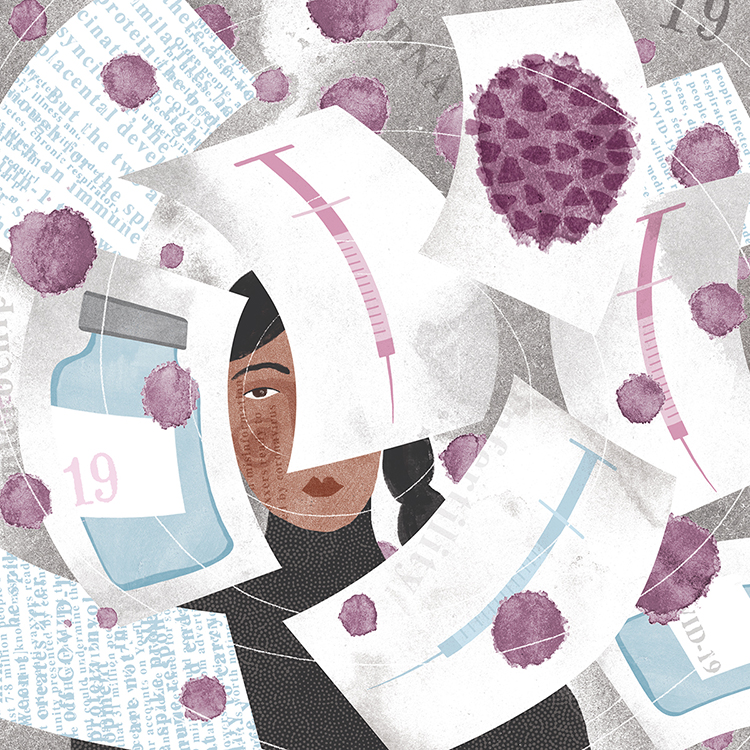You can help prevent the spread of misinformation about COVID vaccines

It is seemingly impossible to avoid hearing news about the coronavirus pandemic and about the various COVID-19 vaccines on the market. Vaccine misinformation is a common occurrence and I don’t expect it to go away any time soon.
Since you, and those around you, must make the decision to vaccinate yourselves, the information you encounter online and that you might choose to share plays an important role in the decision to vaccinate (or not). I study misinformation online, specifically around vaccines, and I want to caution you about the kind of misinformation you may see in the coming months and offer you tools to stop its spread.
Vaccine misinformation is not new. Claims like “vaccines cause autism” have lingered since the early 1990s despite numerous scientific studies that show there is no link between the MMR vaccine and Autism Spectrum Disorder. What we are seeing now is classic vaccine-opposed narratives and misinformation applied to the COVID vaccine. False reports claim that the COVID vaccine causes side effects like Bell’s palsy or even death. These stories are built around bits of true information presented in a misleading way. For example, while it is true that six people died during the Pfizer-BioNTech trials, only two were given the vaccine. The other four received a placebo. There is no evidence to suggest the deaths are connected to the vaccine.
Different types of misleading information about vaccines include stories discrediting the vaccine’s safety, efficacy and necessity. These stories can be difficult to debunk as they may be based on some truth manipulated to be misinformation. You may also see conspiratorial claims, like the vaccine contains tracking microchips.
Not all vaccine-opposed content will be about the vaccine itself. There will be more conversation about mandates and vaccines being “forced” on people. While laws and regulations vary by state, there is little evidence that a COVID vaccine will be forced onto anyone. We do currently require certain vaccinations in schools and places of employment, but there is always an exemption option depending on the state or organization.
What if you are the source of misinformation? Social media platforms like Facebook, Twitter and TikTok have updated their policies on COVID vaccine misinformation. However, misinformation happens quickly and can be worded to circumvent a platform’s policy.
You can help reduce the spread of misinformation online, whether it’s accidental or intentional. Sharing mis- or disinformation gives it power. Regardless of your demographic, you can be susceptible. Sometimes you may be specifically targeted. Misleading information not only spreads by what we publicly share or see on social media platforms, but what we share in private communications with friends and family. Effective misinformation is designed to cause an emotional response, triggering a desire to share it.
Resources are available to help you identify misinformation. You can improve your ability to spot misinformation. A key approach is the Stop, Investigate, Find and Trace (SIFT) technique, a fact-checking process developed by digital literacy expert Mike Caulfield. When you encounter something you want to share, stop and check if you know the website or source of the information. You can investigate the source. Then find trusted coverage to see if there is a consensus among media sources about the claim. Finally, trace claims, quotes and media back to their original sources to see if information was taken out of context or manipulated.
If you are able to get vaccinated, share your story to highlight the positive elements of getting a vaccine. However, understand that once you post something on social media, it can be taken out of context and used in ways you may not agree with. Decontextualization is a common misinformation tactic. Most people care about updates concerning the coronavirus pandemic and the vaccine. We want to share important and critical information with our loved ones. In doing so, make sure you develop debunking habits. While social media platforms and news outlets will continue to address vaccine misinformation, we can all help in minimizing its spread and its power.